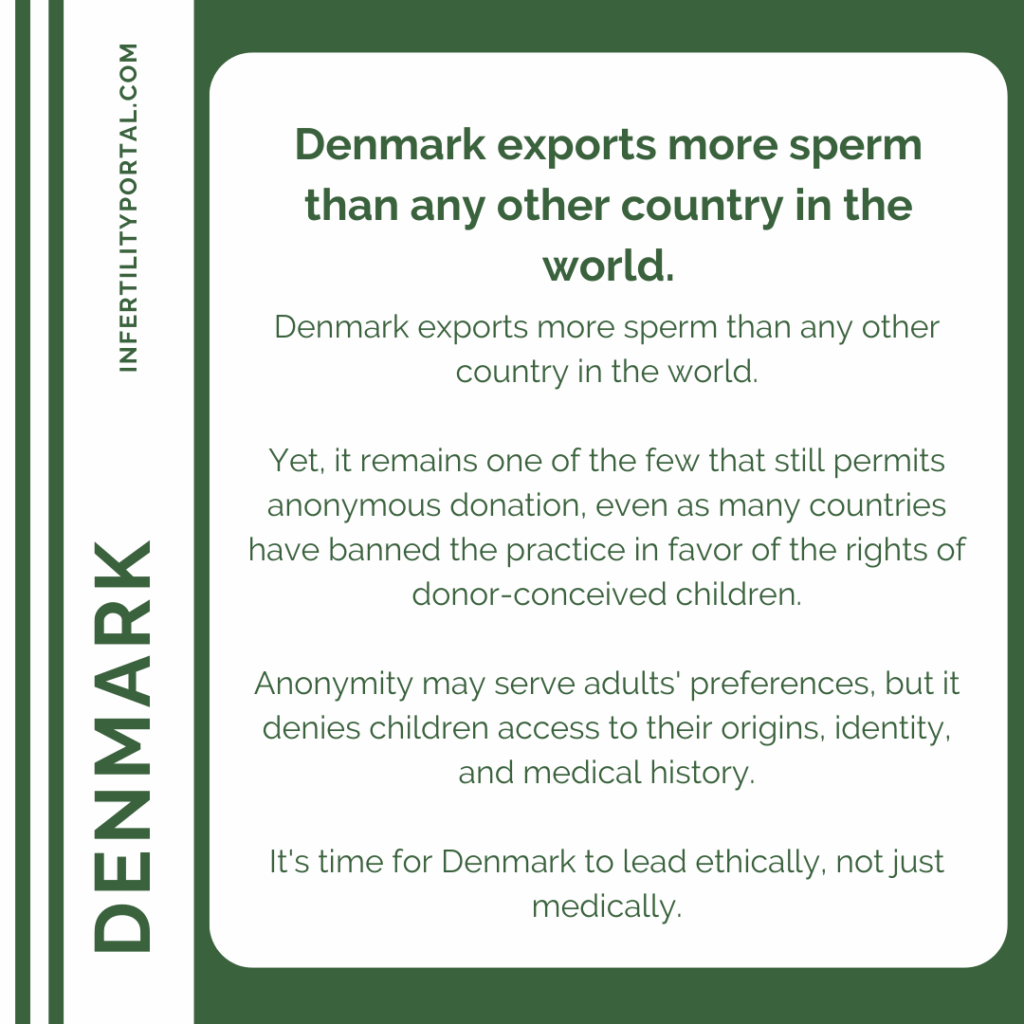It’s Time for Change: Rethinking Anonymous Sperm Donation in Denmark
Denmark is a global leader in reproductive medicine. It is renowned for its clinics, its innovation, and its role as the world’s largest exporter of donor sperm. With that leadership comes a responsibility. Not just to advance science, but to shape ethical standards that protect all parties involved, especially the donor-conceived individuals whose lives are most directly impacted.
For too long, the conversation around sperm donation has centered on the needs and choices of adults: those seeking to build families, and those willing to donate. But there is a growing recognition, both internationally and among donor-conceived communities, that children’s rights and voices must also be part of this dialogue.
The Global Shift Toward Transparency
Around the world, countries are moving away from anonymous donation in favor of identity-release or known-donor models. The reason is simple: identity is not a luxury—it’s a human right.
Donor-conceived individuals increasingly speak out about the emotional toll of being denied access to their biological roots. Studies consistently show that openness, honesty, and access to information support healthier outcomes for donor-conceived people, not just as children, but as adults navigating medical, psychological, and personal identity issues.
Denmark’s Unique Role
As the top exporter of donor sperm, Denmark’s policies resonate far beyond its borders. Families across Europe, North America, and Asia turn to Danish sperm banks. This global reach gives Denmark an outsized influence—not just medically, but morally.
Yet Denmark remains one of the few countries where anonymous sperm donation is still legally permitted and widely practiced. This legal structure leaves thousands of donor-conceived individuals worldwide without access to basic information about their origins, even as demand for transparency grows.
Balancing Choice with Responsibility
The conversation is not about restricting access to donor conception. It is about ensuring ethical practices that respect the rights of all involved. Intended parents should have options. Donors should be protected. But children should not be left out of the equation.
The well-being of donor-conceived people should never be secondary to adult convenience or commercial interests. Medical innovation must be paired with ethical reflection, and that begins with policy change.
A Call to Action
Denmark has the opportunity, and the responsibility, to lead not only as a pioneer in reproductive medicine but as a model for ethical family creation. The time has come to phase out anonymous donations and join the growing international movement toward identity rights and donor transparency.
The lives, identities, and futures of donor-conceived people deserve more than silence.
It’s time for Denmark to lead the world forward, not just in science, but in justice.


